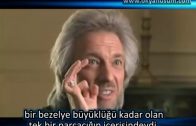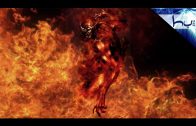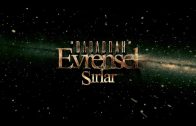29. Yeniden Okuyalım – Read Anew! – Ahmed Hulusi
http://ahmedhulusi.org/
http://ahmedhulusi.org/en/
“29. Yeniden Okuyalım – Read Anew! – Ahmed Hulusi”
06:50 Kur’ân “OKU”mak nasıl olur? Öncelikle, Kurân’ın, yukarıdaki tahtından Dünya üstünde Mekke’deki insanlara odaklanmış, derdi onlar olup, değişen şartlara göre sürekli buyruklar yollayan bir tanrının hükümleri olmadığını çok iyi anlamak gerekir.
08:00 Kurân’da çelişki görürsek, bu onda çelişki olmasından değil, bizim Kurân’ın RUHUNU ve bütünselliğini anlayamamamızdan kaynaklanır.
09:35 Bilir misiniz Kurân’ın en çok sevdiğim bölümleri nereleridir?..
Elime aldığım anda aklıma, mantığıma ters gelen, yanlış gördüğüm bölümleri! İşte bütün sırlar o bölümlerdedir!
10:50 Kur’ân okumanın edebi, her eline alışta, ilk defa açıyormuşcasına içine girip, defalarca okumuş bile olsan, hiçbir şey bilmiyormuşcasına orada yazılı olanı okuyup ne dediğini, neye işaret ettiğini anlamaya çalışmaktır!
12:15 Kur’ân, size dışardan empoze edilen bir şey değil, varlığınızdaki bir hakikatin size dışardan hatırlatılmasıdır. Özünüzdekinin size seslenişidir!
14:25 Birileri çıkıp Kur’ân latince harflerle okunamaz diyerek, Arapça harflerle yazılmışı okumasını bilmeyenlere bu yolu kapamaktadır! Halbuki, dil, olayın en son safhasıdır. Önemli olan beynin, o kendisine gelen mesajı şekillendirmesi değil, oradaki anlamı deşifre etmesidir.
15:45 Evet, İhlâs Sûresi’nin vurguladığı TEKillik açısından ve Hz. Âli’nin açıkladığı “B” sırrı anahtarı ışığında, Kurân’ın satır aralarında gizli kalmış, fark edilmeyen bazı âyetlerine eğilelim şimdi de vaktimiz elverdiğince…
19:30 “Ayet’el Kürsi”nin bizim bakış açımızla nasıl anlaşıldığı ve insandaki zuhuru ile ilgili başka bir örnek..
22:00 Kurân’dan farklı surelerdeki bir kısım ayetlerden örnekler…
—————————————————————————————————–
01:27 First, I’d like to tell you a story I’ve just remembered. I had shared it with my website readers before. I have heard that people like stories. Anyway, our friends are angry at me. They say ‘we have no time for stories, tell us the details of the subject’, but they must indulge me for a moment.
06:14 We have already mentioned widely that although the meanings of all prayers and dhikr in our book ‘The Power of Prayer’ are not known or are read without believing, they will be of great use. It’s just a way of operating a mechanism and its realization has nothing do with faith or a god up in the sky someplace over there.
08:29 For example, when reading the chapter al-Ikhlas if one perceives it as dual relationship between a God and His servant, rather than the Absolute Oneness and Unity delineated by these verses, this shows an inadequacy of a holistic approach and logical completeness.
11:54 Also, without thinking, by way of imitating, you say: ‘This is from our god and all of it is true’ and you live at the point of accepting it without thinking. But, what you are asked for is to evaluate the Quran with your wisdom and put forward your ideas, to realize what is being aimed at by way of giving examples.
13:34 Now let’s look at the second and the most important point of this subject. Words are repeated in the brain as a result of visual perception and then the sound is produced by the voice system. Please do try to understand this part very well…
16:14 Let’s start with the first ayats of Surah Al-Baqarah which comes after Surah Al-Fatiha. As much as we can understand, with an interpretation from our window…
18:57 Now let us have a look at the meaning of the Ayat al-Qursi, the popular verse generally read for protection… According to my understanding, the Ayat al-Qursi reveals the various stations and levels of the names and attributes of Allah manifested on man. It begins from the station of absolute essence of Oneness (Ahadiyyah) the essential reality of man, and delineates all of the various stations up until the physical body…
34:17 Yes, my friends.. There are so many verses that must be thought about deeply and dwelled upon.














